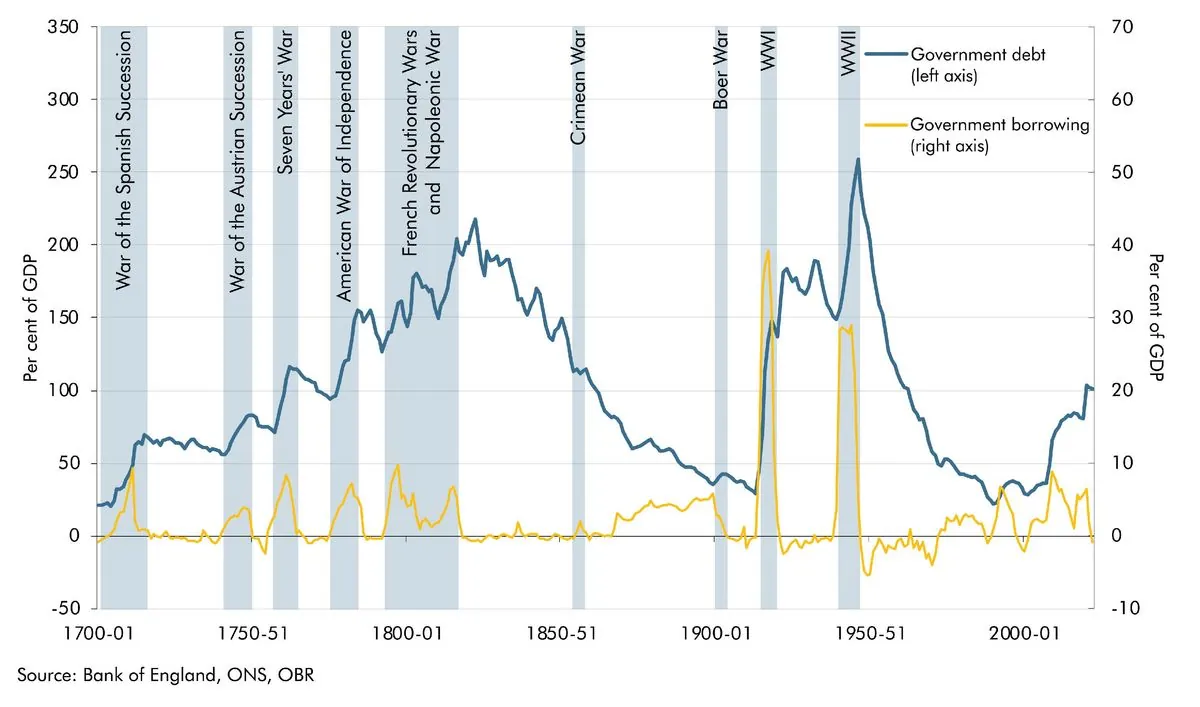UK's Fiscal Dilemma: Balancing Spending, Taxation, and Economic Growth
UK faces long-term fiscal challenges as government spending outpaces revenue. Conservative leadership advocates for smaller government and supply-side reforms to boost growth and reduce taxes, addressing welfare, healthcare, and immigration issues.

The Office for Budget Responsibility (OBR) recently released a report highlighting a concerning trend in UK government finances. The data indicates a significant divergence between government spending and revenue over the next five decades, prompting discussions about potential solutions to this fiscal challenge.
Some commentators have suggested that tax increases are necessary to address this issue. However, this approach overlooks alternative strategies that could potentially resolve the fiscal imbalance without placing additional burdens on taxpayers.
One proposed solution involves implementing a smaller government model coupled with supply-side reforms. This approach aims to stimulate economic growth while simultaneously reducing the tax burden. The underlying principle is that by decreasing government expenditure, it becomes possible to lower taxation levels.

A key area requiring attention is the welfare system. The UK's welfare expenditure has experienced substantial growth, positioning the country as an outlier in international comparisons. Since the onset of the COVID-19 pandemic, there has been a notable increase in economically inactive working-age individuals due to long-term health issues. This trend is unique to the UK among European nations, echoing historical concerns about the country's economic health.
Addressing this issue requires implementing measures to reintegrate these individuals into the workforce, which would not only reduce welfare costs but also increase tax revenue and boost overall economic productivity.
Healthcare expenditure presents another significant challenge. Over the past three decades, the UK's total health expenditure has nearly doubled as a percentage of GDP, rising from under 6% to over 11%. This trend is expected to continue, particularly given the aging baby boomer generation, which is likely to place increased demands on healthcare services.
Immigration policy also plays a crucial role in the UK's economic landscape. While immigration can potentially address labor shortages and contribute to economic growth, it's essential to consider the long-term fiscal impact. Recent OBR data suggests that low-skilled migrants may represent a net cost to the UK economy over their lifetime.
To address these challenges, a more nuanced approach to immigration is proposed, focusing on attracting high-skilled individuals who can make substantial economic contributions. This strategy aims to break the cycle of low growth and high immigration, shifting towards a model based on control and positive economic impact.
"We need a system based on control and contribution, and to break the low-growth, high immigration cycle. It's one of the reasons I am so keen for governments to talk more about GDP per capita when it comes to the health of the economy."
The emphasis on GDP per capita, rather than overall GDP, is crucial in assessing the true health of the economy and its impact on individual citizens. This metric provides a more accurate reflection of living standards and economic well-being.
Additionally, implementing family-friendly policies, such as recognizing children in the tax system and reducing childcare costs, could help address demographic challenges. Currently, UK childcare costs significantly exceed those in countries like France and Germany, potentially discouraging family growth.
In conclusion, addressing the UK's long-term fiscal challenges requires a multifaceted approach. By reimagining the role of government, implementing targeted reforms, and focusing on sustainable economic growth, it may be possible to navigate these challenges without resorting to increased taxation. This strategy aims to present a renewed vision of conservative economic principles to address the evolving needs of the nation.


































